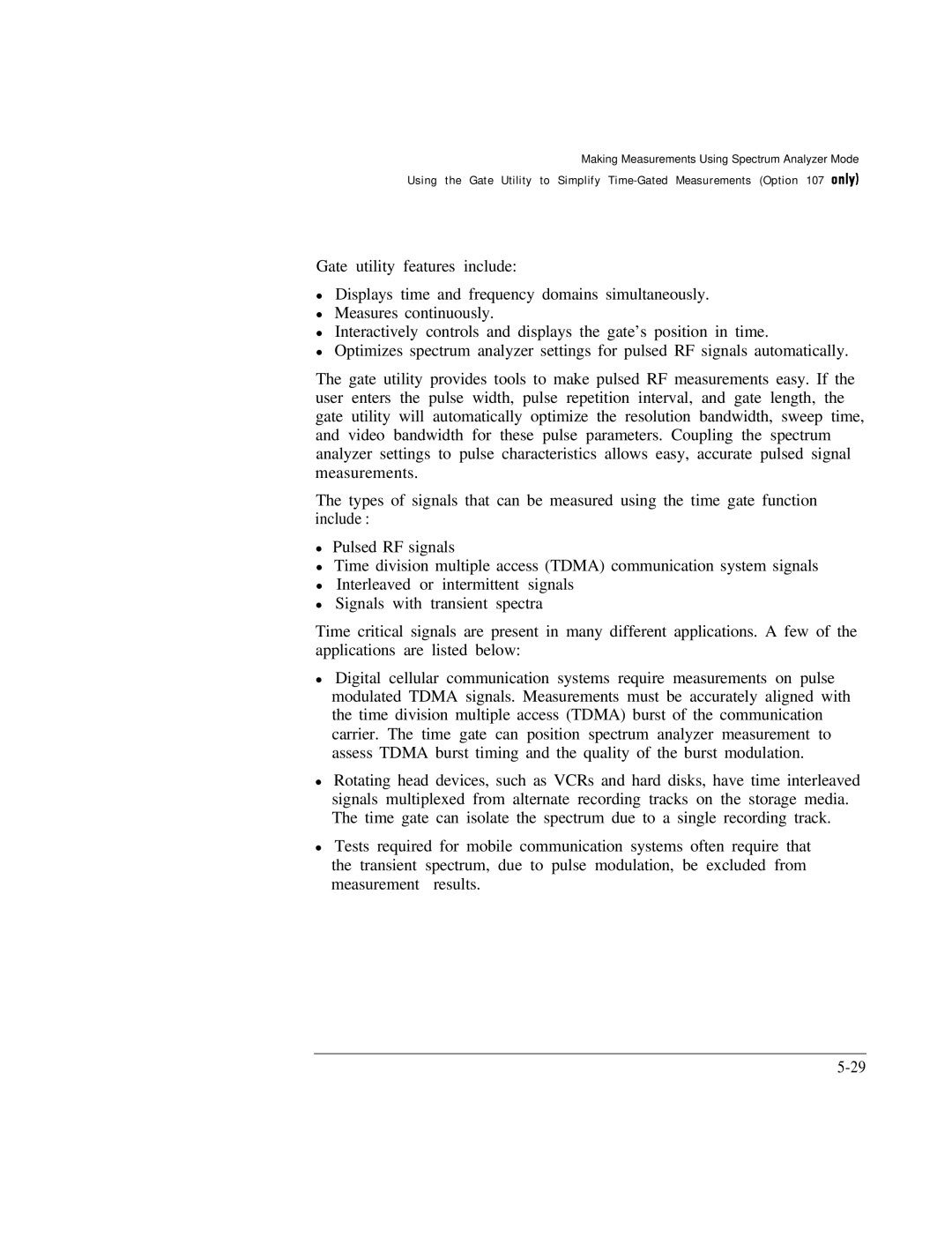
Making Measurements Using Spectrum Analyzer Mode
Using the Gate Utility to Simplify
Gate utility features include:
•Displays time and frequency domains simultaneously.
•Measures continuously.
•Interactively controls and displays the gate’s position in time.
•Optimizes spectrum analyzer settings for pulsed RF signals automatically.
The gate utility provides tools to make pulsed RF measurements easy. If the user enters the pulse width, pulse repetition interval, and gate length, the gate utility will automatically optimize the resolution bandwidth, sweep time, and video bandwidth for these pulse parameters. Coupling the spectrum analyzer settings to pulse characteristics allows easy, accurate pulsed signal measurements.
The types of signals that can be measured using the time gate function include :
•Pulsed RF signals
•Time division multiple access (TDMA) communication system signals
•Interleaved or intermittent signals
•Signals with transient spectra
Time critical signals are present in many different applications. A few of the applications are listed below:
•Digital cellular communication systems require measurements on pulse modulated TDMA signals. Measurements must be accurately aligned with the time division multiple access (TDMA) burst of the communication carrier. The time gate can position spectrum analyzer measurement to assess TDMA burst timing and the quality of the burst modulation.
•Rotating head devices, such as VCRs and hard disks, have time interleaved signals multiplexed from alternate recording tracks on the storage media. The time gate can isolate the spectrum due to a single recording track.
•Tests required for mobile communication systems often require that
the transient spectrum, due to pulse modulation, be excluded from measurement results.
